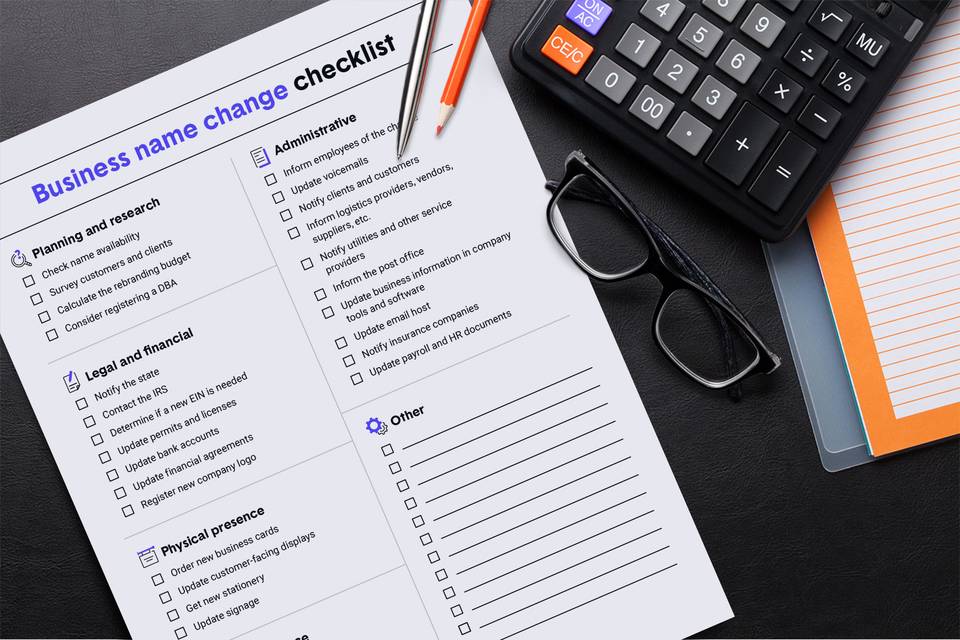4 things to consider before changing a business name
If you’re still unsure about renaming your business, here are important factors and implications you should consider before making the final decision.
1. The cost of changing business names
Most states charge a fee to process your business name change paperwork. Though the fee can vary from state to state, it usually ranges from $20 to $150.
Apart from the filing fee of a business name change, the renaming process can also incur other costs associated with activities such as website and logo redesign, checking trademark and domain availability, hiring outside expertise, etc.
The cost of making a name change can also vary depending on the size and type of your business. For example, for large corporations that involve many decision-makers, this change might require the consent and approval of the corporation’s board of directors and stakeholders, which can take a substantial amount of time and resources.
2. Your clients’ and customers’ opinions
Customer loyalty is one of the most important factors when it comes to building a sustainable and successful business. Without the support of clients and customers, a business would not have the fuel to continue operating smoothly.
Before making the decision to rename your business, it is of utmost importance to consult with your loyal customers and take into consideration their opinions by conducting a survey or poll. Though rebranding your business through a name change could potentially help attract customers in new target markets, it could also run the risk of losing trust with your current audience.
3. The option to register a DBA instead
A DBA, which stands for “doing business as,” is often used by sole proprietors or partnerships that want to operate their business under a different name. Since you’re not officially changing your entity name, there’s no need to go through the process of changing business licenses, bank account names and legal documents.
As a sole proprietor, registering a DBA is one of the most affordable ways to create a separate business name without having to form an LLC or corporation. However, the disadvantage of registering a DBA as a sole proprietor is the lack of liability protection and tax benefits.
For LLCs and corporations, filing a DBA will allow you the right to conduct business under a name that is different from the name used to file your LLC or corporation paperwork.
4. The availability of the new business name
Before going through with the official name change, it is crucial that you first check the availability of the chosen name. No matter which state you’re in, you will not be allowed to register your business name if it’s already taken by another business.
The process of checking for availability can vary from state to state, but in most cases, you can conduct a name availability check within the Secretary of State’s database.
How to change your business name






